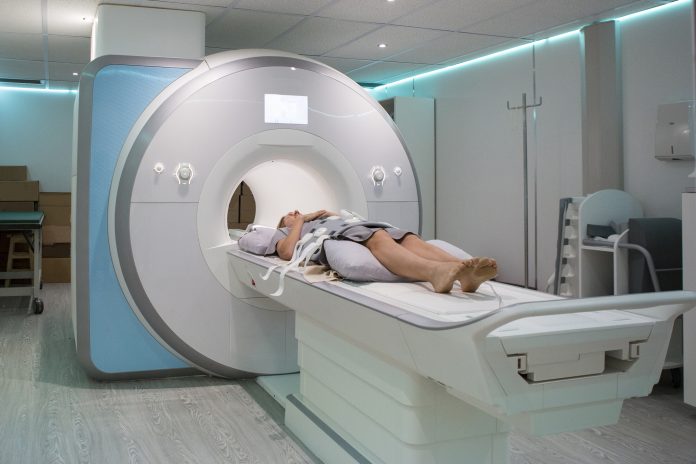A new total-body PET scanner revealed at St Thomas’ Hospital in London is up to 40 times more sensitive than previous scanners and is set to revolutionise how diseases are diagnosed and treated in the UK
The new PET scanner is up to 40 times more sensitive and 10 times faster than existing PET scanners, offering huge potential benefits for both patients and medical research.
This advanced technology can scan the entire body in much less time, which makes it possible to detect serious illnesses like cancer, heart disease, and neurological conditions much earlier.
This means doctors can identify subtle changes in the body that may indicate disease long before symptoms appear, leading to faster diagnoses and more effective treatments.
Faster, better diagnoses for patients
This new machine makes undergoing a PET scan far more comfortable and efficient for patients.
It was reported that one of the first patients to use the scanner, Sarah Corfield, who has stage 4 melanoma, described her experience as being “much quicker” and “much smoother” than previous scans.
With traditional PET scanners, patients have to remain in the machine for up to 30 minutes, but the new scanner completes the procedure in 15 minutes. It also eliminates the need for patients to be repositioned during scanning, reducing discomfort and anxiety.
The scanner also offers a much quieter scanning environment and a more comfortable experience, which can be especially helpful for children or people who suffer from claustrophobia.
The images produced by this scanner are of much higher quality, providing a clearer more detailed view of the body’s internal processes for doctors.
Moving forward in drug discovery and medical research
The new scanner also has the potential to transform medical research and drug discovery.
The scanner will feed important data into the National PET Imaging Platform (NPIP), a UK-wide initiative to create a bank of medical research findings to support the development of new medicines and treatments.
By gathering data from patients across the country, the platform will build a strong database of insights into the biological mechanisms of diseases, creating a better understanding of how they develop and progress.
The scanner’s ability to capture a whole-body image in a single scan is essential for this purpose. Researchers can track the progression of diseases like cancer and gain insights into conditions affecting the brain, heart, and muscles. The scanner’s sensitivity means it can detect early-stage diseases.
Strengthening the NHS and healthcare systems
This new technology also promises to relieve some pressure on the NHS by increasing the capacity for patient scanning.
The total-body PET scanner can scan up to 50% more patients per day than traditional PET scanners, speeding up the diagnostic process and reducing waiting times. This efficiency is particularly important at a time when the NHS is facing significant challenges, including long waiting lists and high demand for diagnostic tests.
The integration of cutting-edge technology into the NHS will be key to making the system more digitally advanced and future-proof as part of the government’s 10-Year Health Plan.
A joint effort to improve healthcare
The total-body PET scanner is just one part of a larger effort to enhance the UK’s medical research infrastructure. Funded through a £32 million investment from the UK Research and Innovation (UKRI) Infrastructure Fund, the National PET Imaging Platform will include several scanners across the country, including one in Edinburgh and another at Royal Free Hospital in London.
This nationwide network of scanners will provide valuable data that will drive innovation in medical research and accelerate the discovery of new treatments.
The future of healthcare innovation
As this new technology becomes more widely available, the hope is that it will improve outcomes for individual patients and catalyse breakthroughs in medical science.
The new total-body PET scanner represents a significant step forward in the UK’s healthcare capabilities, with faster, more accurate diagnoses, greater patient comfort, and a wealth of data to fuel research.
The ongoing collaboration between hospitals, researchers, and the government ensures that this innovation will benefit patients and communities nationwide.











